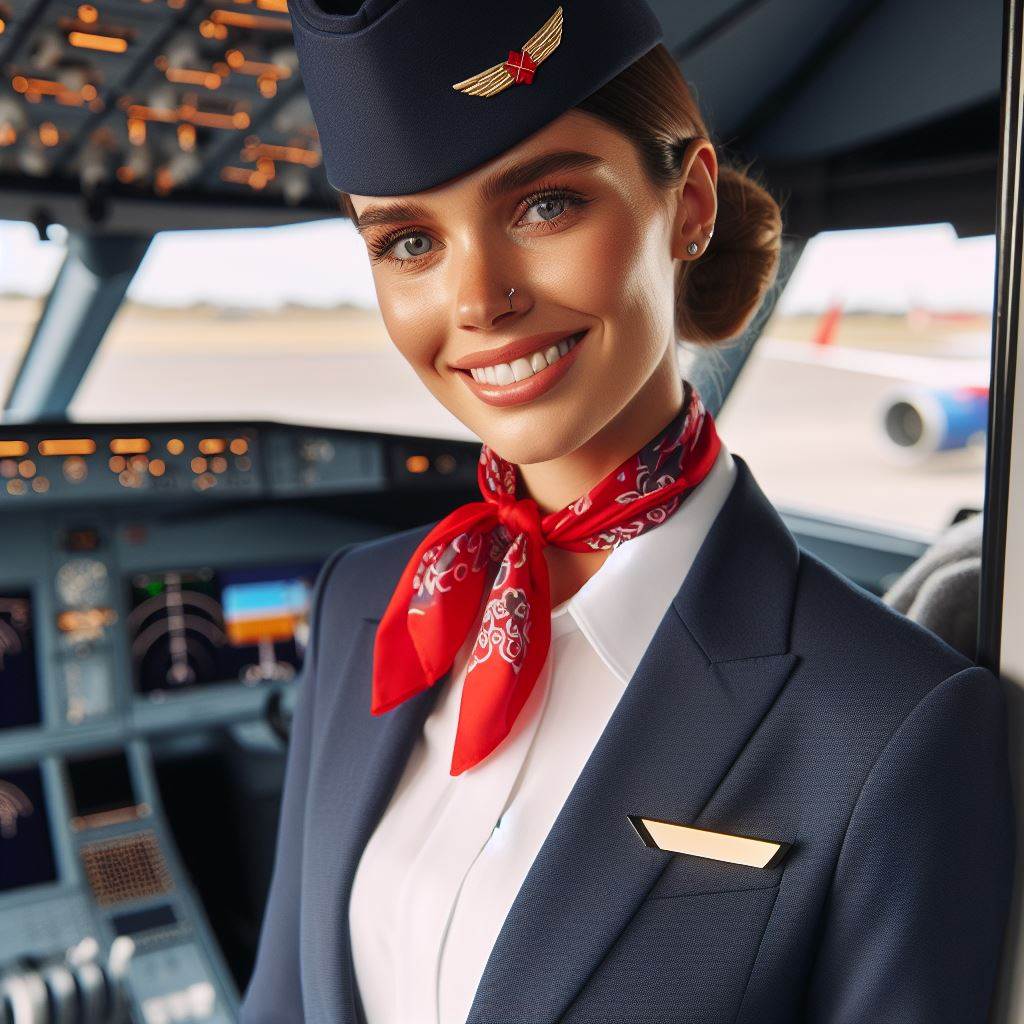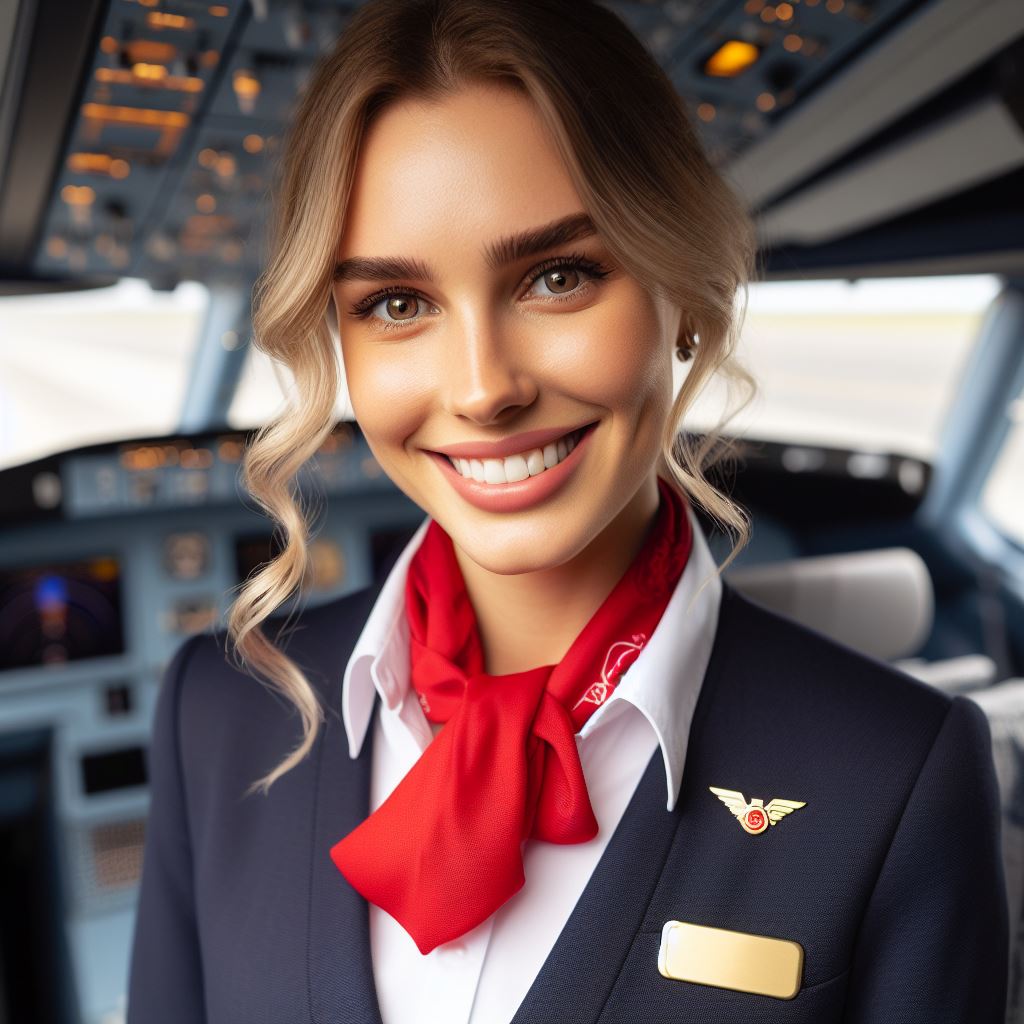Introduction
In this comprehensive blog section, we embark on an insightful journey through the career progression from rookie to senior roles within the vibrant Australian aviation industry.
Delving deep into the professional trajectory of individuals, we unravel the intricacies of career advancement, shedding light on the growth opportunities and challenges encountered along the way.
Our exploration is grounded in the context of the Australian aviation landscape, characterized by its rapid expansion and ever-evolving dynamics.
By examining the pathways of aspiring professionals as they navigate through various stages of their careers, we aim to provide valuable insights and perspectives on the transformative journey within this dynamic industry.
From the initial steps taken by rookies to the seasoned expertise acquired by seniors, each phase of career development is meticulously dissected, offering a comprehensive understanding of the factors influencing progression and success.
Whether you’re a budding aviation enthusiast or a seasoned industry veteran, this blog section promises to be an enriching resource, brimming with valuable knowledge and actionable insights to navigate your own career trajectory in the Australian aviation sector.
Starting as a Rookie
A. Definition of a rookie in the aviation industry
In the aviation industry, a rookie is a novice pilot or aviation professional.
B. Initial steps to enter the industry
1. Obtaining necessary qualifications and licenses
- Pursue aviation-related education and training.
- Acquire licenses such as Private Pilot License (PPL) or Commercial Pilot License (CPL).
2. Gaining practical experience through internships or entry-level positions
- Seek internships at aviation companies.
- Apply for entry-level positions like flight instructor or ground crew.
C. Challenges faced by rookies
1. Limited opportunities due to competition
- Fierce competition for entry-level positions.
- High demand for experienced professionals over rookies.
2. Building a reliable network
- Establish connections with industry professionals.
- Attend aviation events and conferences to network effectively.
3. Overcoming initial insecurities and uncertainties
- Confidence in skills and abilities.
- Seek mentorship from seasoned professionals for guidance.
Starting as a rookie in the aviation industry is both exhilarating and challenging.
Rookies embark on a journey filled with learning opportunities and obstacles to overcome.
To thrive in this dynamic field, rookies must equip themselves with the necessary qualifications, gain practical experience, and navigate through the competitive landscape with determination and resilience.
With dedication and perseverance, rookies can soar through the skies and ascend to senior positions in the Australian aviation industry.
Read: Navigating Trucking Laws in Australia
Advancing to Junior Roles
A. Transition from rookie to junior roles
- Gaining more experience and responsibility.
- Opportunities for career growth and skill development.
B. Necessary skills and qualifications for junior positions
- Importance of continuous learning and training.
- Seeking mentorship and guidance from industry professionals.
C. The changing dynamics and increased responsibilities
Advancing to junior roles in the aviation industry is an important step in one’s career path.
Individuals usually begin as rookies, eager to learn about the industry’s ins and outs.
With more experience, they advance to junior roles, marking a significant milestone.
Junior roles offer benefits like gaining more experience, handling increased responsibilities, and becoming well-rounded professionals.
Working alongside seasoned professionals allows them to learn directly from their expertise.
Junior positions provide opportunities for career growth and skill development.
To excel, continuous learning and staying updated with industry trends are necessary.
Seeking mentorship from experienced professionals is highly beneficial for junior professionals.
Your Personalized Career Strategy
Unlock your potential with tailored career consulting. Get clear, actionable steps designed for your success. Start now!
Get StartedThe dynamics and responsibilities in junior positions differ significantly from those of rookies.
Junior professionals find themselves taking on more complex projects and assuming greater accountability.
The transition requires adaptability, resilience, and a willingness to embrace new challenges.
Read: Best Aussie Routes for Truck Drivers

Learn More: Balancing Life as an Australian Airline Pilot
Find Out More: Navigating Australian Transport Regulations
Climbing the Ranks to Senior Positions
A. Overview of senior roles in the aviation industry
1. Examples of senior positions and their scope of responsibilities
- Chief Pilot: Responsible for overall flight operations and safety management.
- Airline Operations Manager: Ensures smooth operational efficiency and handles any disruptions.
- Aviation Safety Inspector: Conducts audits and inspections to ensure compliance with safety regulations.
- Air Traffic Control Supervisor: Oversees and guides air traffic controllers during high-pressure situations.
2. Salary and benefits
Senior positions in the aviation industry come with attractive salary packages and benefits.
These may include higher pay scales, performance bonuses, health insurance, retirement plans, and travel perks.
B. Steps taken to reach senior positions
1. Demonstrating exceptional skills and expertise
To reach senior positions, aspiring professionals in the aviation industry must showcase their exceptional skills and expertise.
This can be achieved through continuous learning, obtaining advanced certifications, and participating in relevant training programs.
2. Gaining recognition and leadership opportunities
Standing out among competitors is crucial.
Seeking opportunities to lead projects, demonstrating strong leadership skills, and actively contributing to the industry help pave the way to senior positions.
Networking and building relationships with industry leaders can also provide valuable guidance and support.
C. Challenges faced during the journey to senior positions
1. Maintaining work-life balance
As professionals climb the ranks, the pressure to perform increases. Balancing work commitments with personal life becomes a challenge.
A demanding schedule, irregular working hours, and constant availability can take a toll on personal relationships and overall well-being.
2. Overcoming competition and proving worthiness
Competition in the aviation industry is intense, and aspiring individuals must continuously prove their worthiness.
Facing skilled competitors, demonstrating consistent performance, and staying abreast of industry trends are essential to overcome obstacles and secure senior positions.
All in all, reaching senior positions in the aviation industry requires dedication, exceptional skills, and perseverance.
As professionals climb the ranks, they must be prepared to take on increased responsibilities, maintain work-life balance, and continuously prove their worthiness.
Despite the challenges, the rewards associated with senior roles make the journey worthwhile.
Read: Top Aussie Truck Models for Long Hauls
Stand Out with a Resume That Gets Results
Your career is worth more than a generic template. Let us craft a resume and cover letter that showcase your unique strengths and help you secure that dream job.
Get HiredDiscover More: Aussie Pilot Life: Challenges and Rewards
You Might Also Like: Truck Driver Training: What to Expect
Key Factors Affecting Career Progression
A. Importance of personal traits and attributes
- Perseverance and dedication drive success.
- Adaptability and eagerness to learn are essential.
In the vast Australian skies, career progression is a journey marked by pivotal factors.
One’s personal traits and attributes serve as the cornerstone of advancement.
Perseverance and dedication propel individuals forward, instilling resilience in the face of challenges.
Adaptability and a fervent desire to learn are indispensable assets, enabling professionals to thrive in dynamic environments.
B. Significance of networking and industry connections
- Forge relationships for opportunities.
- Networking enhances career growth prospects.
Networking holds unparalleled significance in navigating the aerospace industry.
Cultivating connections opens doors to unforeseen opportunities, paving the way for career ascension.
Building a robust network fosters collaboration and knowledge exchange, amplifying one’s professional trajectory.
C. Effect of continuous training and professional development opportunities
- Ongoing training hones skills.
- Professional development fosters career advancement.
Continuous training and access to professional development opportunities are catalysts for career elevation.
Embracing ongoing learning refines skills and keeps professionals abreast of industry trends.
Investing in personal growth not only enhances competency but also positions individuals as frontrunners for senior roles.
In the Australian aviation landscape, progression from rookie to senior demands a blend of intrinsic qualities and external support.
Perseverance, adaptability, and a commitment to learning are indispensable attributes.
Transform Your LinkedIn for Maximum Impact
Elevate your professional brand with a LinkedIn profile that attracts recruiters, showcases your expertise, and maximizes opportunities. Stand out in your industry with a profile built for success.
Boost ProfileConcurrently, fostering connections, both within and beyond the industry, is crucial for unlocking avenues of advancement.
Embracing continuous training and seizing professional development opportunities are non-negotiables for propelling one’s career to new heights.
Read: Truck Driving: Skills You Need in Australia
Explore Further: Australian Airline Pilot: Career Progression
Uncover the Details: Case Study: Efficient Logistics in Australia
Conclusion
A. Recap on the career path from rookie to senior roles in the Australian aviation industry
The career path in the Australian aviation industry can be challenging yet rewarding.
Starting as a rookie, individuals can work their way up to senior roles through dedication, hard work, and continuous learning.
B. Encouragement for individuals aspiring to advance in their aviation careers
For those aspiring to advance in their aviation careers, it is important to have a clear goal, seek opportunities for growth, and never stop learning.
With determination and perseverance, success can be achieved.
C. Final thoughts and advice for career progression in the industry
In closing, the Australian aviation industry offers tremendous opportunities for career growth.
It is essential to build a strong foundation, network with professionals, and stay updated with industry trends.
Indeed, the progression from a rookie to achieving senior status in the aviation industry involves overcoming numerous challenges, but the rewards are undeniably substantial.




